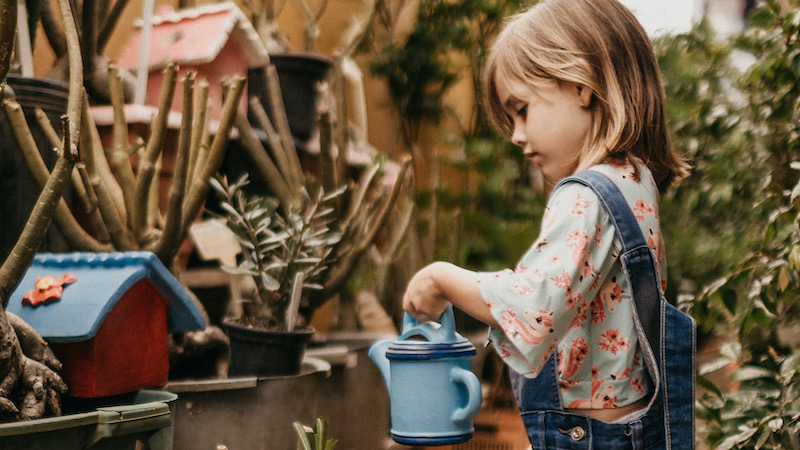Equipping your foster child with the necessary skills to operate in the world is an essential part of being a foster parent – and one of the most daunting! It can be difficult to know where to start or whether you are doing the right thing. It can often feel like you’re just winging it – getting through the day, without imparting any “life skills” at all. Rest assured, it’s not just you – everyone feels like that.
At Orchard Fostering “what life skills should I teach my foster child?” is a question we hear a lot. While the answer varies from child to child, there are a few important life lessons and skills to which every foster child should be introduced. We have compiled a list of our top five life skills for foster carers to impart to their foster children. Read on to find out more about teaching foster children life skills from a practical, creative, and mental wellbeing standpoint.
Cooking with your foster child
Life would be a sorry thing without food. We all need to eat and learning to cook for yourself is an essential life skill. You can introduce your foster child to the kitchen from an early age, letting them measure ingredients or whipping up some simple baked goods on the weekend. As they get older, you can bring them into dinner preparation and allow them to explore the world of food for themselves. Maybe one day your foster child can cook an entire meal for you (let us know how that one turns out!)
Bringing your foster child into the kitchen is rewarding on multiple levels – it can help you forge a bond with them in the heart of your home; it can help them navigate healthy eating and nutritional ideas; it can help them express themselves creatively and feel useful around the house.
Housekeeping and home maintenance skills
Ah, the joy of housekeeping. We’ve all let the dishes pile up, the washing basket overflow, and the countertops stay sticky at one time or another. We also all know the satisfaction of a house well-cleaned. Housekeeping is an important life skill for your foster child to have, and you can help them develop that skill by asking them to help around the house from an early age. Teenagers, in particular, are keen for independence – ironing your own shirts, washing your own dishes, and cleaning the bathroom are all hallmarks of an independent life, so why not give them what they want! Aspirational housekeeping influencers on Instagram, like Mrs Hinch, have made housekeeping into an internet phenomenon, so try and tap into their positivity and techniques when showing your foster children how to keep the house spick and span.
Expressing themselves creatively
While cooking and housekeeping are skills rooted in practicality, we must not neglect the importance of creative skills for your foster child. Unlocking your foster child’s creativity from a young age helps them to develop critical thinking skills that allow them to look at the world in a new way. Expressing themselves creatively enables your foster child to talk about big subjects, process their feelings, and gain insight into their selves in a constructive way.
You can encourage creativity in your foster child by leaving art supplies in their room (pencils, paper, colours); by encouraging them to read; by asking them to make up bedtime stories for themselves; by making creative activities part of your holiday traditions. Build opportunities for creativity into your everyday life and pretty soon you’ll see the impact on your foster child.
Health and hygiene
Looking after your health and hygiene is a vital life skill. Talk to your foster child about basic hygiene skills – brushing your teeth, washing your face and hair, eating healthily (you can incorporate that last one into your cookery lessons!). Discussing these topics brings them out into the open, making your foster child unafraid to discuss their health and hygiene with you – and helping avoid embarrassment as they grow older. Once your foster child enters secondary school, they will likely be talking about their health and hygiene in SPHE classes. You can find lots of materials online from these classes to help you in your discussions.
Managing your foster child’s mental wellbeing
Talking about physical health and hygiene naturally leads to what is probably the most important life skill your foster child will develop in their youth – ways to manage their mental wellbeing. By equipping your foster child with strategies for self-care, you are setting them up with defences against the difficulties they may face as they grow older. Taking time to develop a self-care routine with your foster child – meditating, thought journals, social connections – is vitally important. It puts the power in their hands – letting them know that they can handle whatever life throws at them.
If these life skills seems like a lot to take in, don’t worry. Every day you impart important life skills to your foster child. They observe you constantly, and take in what you are doing, both consciously and unconsciously. They see the way you work in the world and they use you as their guiding light in their journey through their formative years. You are helping them every single day, even if it sometimes feels like you’re stretched thin. You are their guide in the world – and you can show them everything.
If you’re interested in foster care, please contact Orchard Fostering today. We’re available on the phone or via email – you can also fill out a form directly on our contact page. We recruit carers from all across Ireland. At the moment, we’re particularly focused on the west and south of the country – if you are in those areas and interested in fostering, please reach out to us today.

